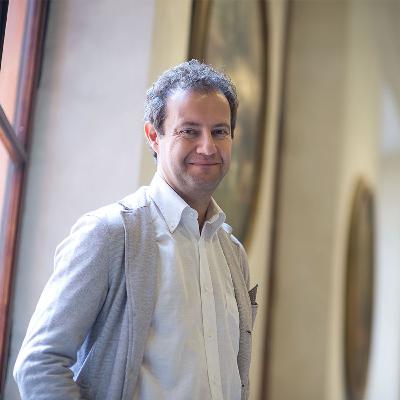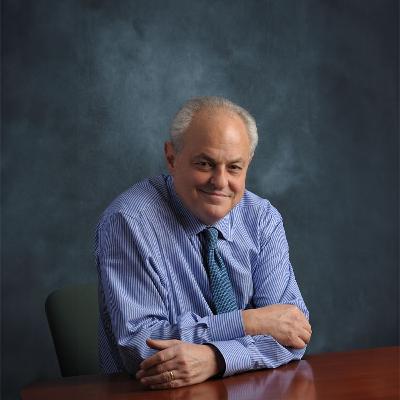“Sentience: The Invention of Consciousness” with Professor Nicholas Humphrey
Update: 2023-07-15
Description
We experience, thus we exist. Our conscious perceptions form the foundation of our self-awareness. They play a vital role in shaping our understanding of ourselves as sentient beings: present, alive, and significant. However, what is the origin of consciousness, and how does the process of experiencing sensations and developing a sense of awareness contribute to its emergence? Is this capacity limited solely to humans? Do other animals share this ability? And what about the potential for future machines?
In his book “Sentience: The Invention of Consciousness” neuropsychologist Professor Nicholas Humphrey uncovers the evolutionary history of consciousness and argues that consciousness evolved to make us feel that life is worth living. Drawing upon his groundbreaking research on social intelligence, as well as his intriguing findings on blindsight in monkeys and profound insights into the philosophy of mind, Professor Humphrey outlines a fascinating narrative to unveil the evolutionary origins of consciousness. In this episode of Bridging the Gaps, I speak with Professor Nicholas Humphrey.
Nicholas Humphrey, Emeritus Professor of Psychology at the London School of Economics, is a theoretical psychologist, who studies the evolution of intelligence and consciousness. He was the first to demonstrate the existence of “blindsight” in monkeys. He has also studied mountain gorillas with Dian Fossey in Rwanda, and proposed the celebrated theory of the “social function of intellect,”. His research holds profound significance in exploring and unravelling the mysteries of the mind and its evolutionary underpinnings.
We start off by discussing the enigma surrounding the emergence of consciousness and the challenges encountered when attempting to understand its nature and origins. Professor Nicholas Humphrey's book introduces the intriguing concepts of cognitive consciousness and phenomenal consciousness, which we thoroughly explore during our conversation. We then discuss in detail the concept of sentience as presented and explained in this book. We delve into the evolutionary perspective, examining why consciousness became an adaptive trait and how it evolved within living organisms. An intriguing question arises: if our early animal ancestors possessed cognitive consciousness, how did it transition into phenomenal consciousness? Could there exist an observable threshold, such as brain size, neuron count, or processing capacity, at which cognitive consciousness transforms into phenomenal consciousness? We then discuss the fascinating notion of blindsight and its relevance to the theory of consciousness presented in the book. We then delve into the complex concept of sensations, exploring how the firing of neurons and the movement of electric signals within the brain give rise to our subjective experience of consciousness. Lastly, we explore the possibility of consciousness emerging within machines, contemplating its potential evolution beyond organic life.
Complement this discussion with ““The Case Against Reality” and The Hard Problem of Consciousness with Professor Donald Hoffman” available at:
https://www.bridgingthegaps.ie/2022/07/the-case-against-reality-and-the-hard-problem-of-consciousness-with-professor-donald-hoffman/
And then listen to “From Consciousness to Synthetic Consciousness: From One Unknown to Another Unknown with David Chalmers” available at:
https://www.bridgingthegaps.ie/2015/03/from-consciousness-to-synthetic-consciousness-from-one-unknown-to-another-unknown-with-david-chalmers/
In his book “Sentience: The Invention of Consciousness” neuropsychologist Professor Nicholas Humphrey uncovers the evolutionary history of consciousness and argues that consciousness evolved to make us feel that life is worth living. Drawing upon his groundbreaking research on social intelligence, as well as his intriguing findings on blindsight in monkeys and profound insights into the philosophy of mind, Professor Humphrey outlines a fascinating narrative to unveil the evolutionary origins of consciousness. In this episode of Bridging the Gaps, I speak with Professor Nicholas Humphrey.
Nicholas Humphrey, Emeritus Professor of Psychology at the London School of Economics, is a theoretical psychologist, who studies the evolution of intelligence and consciousness. He was the first to demonstrate the existence of “blindsight” in monkeys. He has also studied mountain gorillas with Dian Fossey in Rwanda, and proposed the celebrated theory of the “social function of intellect,”. His research holds profound significance in exploring and unravelling the mysteries of the mind and its evolutionary underpinnings.
We start off by discussing the enigma surrounding the emergence of consciousness and the challenges encountered when attempting to understand its nature and origins. Professor Nicholas Humphrey's book introduces the intriguing concepts of cognitive consciousness and phenomenal consciousness, which we thoroughly explore during our conversation. We then discuss in detail the concept of sentience as presented and explained in this book. We delve into the evolutionary perspective, examining why consciousness became an adaptive trait and how it evolved within living organisms. An intriguing question arises: if our early animal ancestors possessed cognitive consciousness, how did it transition into phenomenal consciousness? Could there exist an observable threshold, such as brain size, neuron count, or processing capacity, at which cognitive consciousness transforms into phenomenal consciousness? We then discuss the fascinating notion of blindsight and its relevance to the theory of consciousness presented in the book. We then delve into the complex concept of sensations, exploring how the firing of neurons and the movement of electric signals within the brain give rise to our subjective experience of consciousness. Lastly, we explore the possibility of consciousness emerging within machines, contemplating its potential evolution beyond organic life.
Complement this discussion with ““The Case Against Reality” and The Hard Problem of Consciousness with Professor Donald Hoffman” available at:
https://www.bridgingthegaps.ie/2022/07/the-case-against-reality-and-the-hard-problem-of-consciousness-with-professor-donald-hoffman/
And then listen to “From Consciousness to Synthetic Consciousness: From One Unknown to Another Unknown with David Chalmers” available at:
https://www.bridgingthegaps.ie/2015/03/from-consciousness-to-synthetic-consciousness-from-one-unknown-to-another-unknown-with-david-chalmers/
Comments
In Channel
























